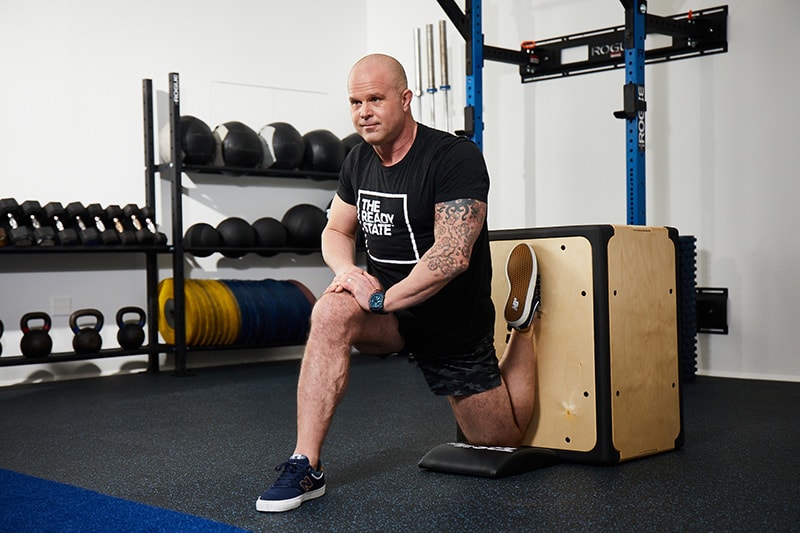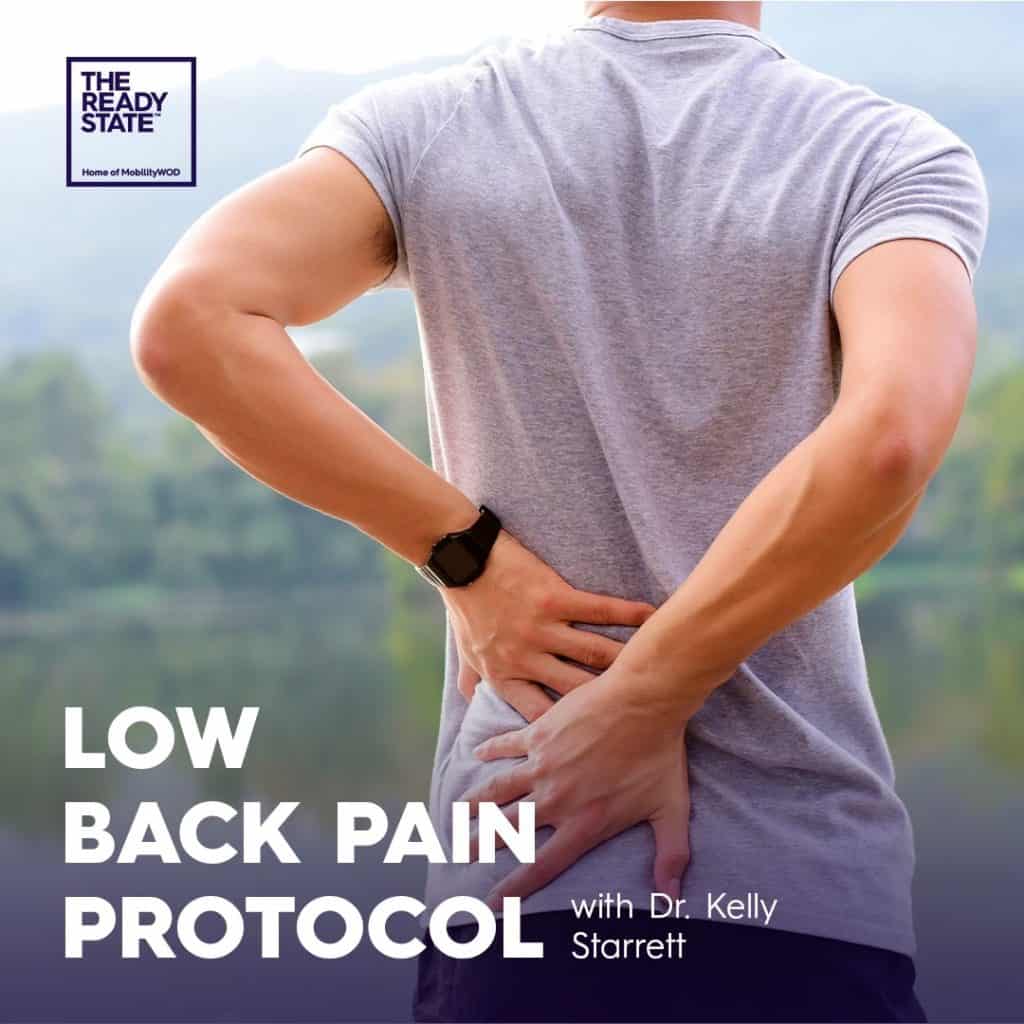Gut Feeling Good: Effective Tips and Techniques for Improving Your Digestive Health
When we talk about performance, we often dive deep into the nuances of mobility, exercise, and functional movement, but here at The Ready State, we also look deeper at wellness factors like sleep quality, stress, environment, and habits. These factors play a pivotal role in your performance, and one of the most important is your gut health.
Often referred to as the body’s “second brain,” your gut orchestrates processes that determine everything from energy production to mental clarity. This is not-least a result of your gut “micro-biome,” an ecosystem of bacteria that influences your health and physiology far beyond your digestion. Your gut biome health appears to be linked to everything from your mental health to recovery and testosterone, and may even influence factors such as motivation to exercise.
We know the interplay between the body’s structures and functions is crucial. Just as the mobility of an ankle can influence knee health, the state of your gut can significantly impact your systemic health. Think of it like a nexus point that directly and indirectly influences all manner of systems across the span of your biology.
Let’s take a closer look at the important role your gut microbiome plays in your overall wellness and the steps you can take to increase your gut health.
What is the Gut Microbiome?
Before diving into the tools of how to improve gut health, it’s essential to grasp the universe within our bellies: the gut microbiome. This complex ecosystem of trillions of microorganisms includes bacteria, viruses, and fungi, and this combination plays a role in your overall health. Beneficial bacteria in your gut can aid or hinder digestion, produce vital nutrients (known as postbiotics), and play a pivotal role in your immune function.
When in balance, they’re our silent partners in the health of your gut and overall wellness. But when they’re off-kilter? Our entire immune system – not just your digestive system- can feel the hit.
A poor balance of bacteria, known clinically as dysbiosis, is currently being explored with associations with the following conditions and diseases:
- Liver diseases such as cirrhosis and NAFLD (associations with overgrowths of certain bacteria or fungi)
- ADHD & Autism (Strong associations with a lack of Lactobacillus Reuteri strains in the upper intestinal tract)
- Inflammatory bowel diseases such as Crohn’s, General IBD, & IBS
- Cardiovascular disease
Some of these conditions may cause dysbiosis, rather than the other way around, but even so, positive benefits from tools like probiotics, FMT, and other technologies for improving gut dysbiosis have also shown improvement for associated conditions. This implies a bidirectional relationship, meaning that while your gut dysbiosis may be the effect, rather than the cause, of an ailment, addressing your gut dysbiosis is still a sound tactic for addressing the issue.
As far as what causes dysbiosis? It appears that many things may have a negative impact on our microbiome, such as:
- Overuse of antibiotics
- Food preservatives
- Unhealthy diets (such as those with added sugar or ultra-processed foods)
- Other environmental factors (such as stress levels)
Interestingly, genetics do not appear to play a major role in your gut health that we know of, meaning the environment is the primary influence here. Unsurprisingly, the foods you eat are perhaps the biggest factor that can improve your gut health.
So what can you actually do to improve your gut health? How can you support it so it supports you back?
Probiotic Supplements
Probiotics have become a buzzword in recent years, promised as miracle cures as often as they are derided as snake oil. Which is true? While I don’t know that I’d call any compound a miracle cure, the truth with probiotics is nuanced.
Probiotics are supplements made of one or multiple strains of bacteria that have been identified as beneficial for gut health.
The problem with making a blanket statement about probiotics is that there are currently over 500 species of probiotic bacteria as identified by Harvard, and within that 500, each species has multiple strains. Different probiotic strains, much less species, can have wildly different effects on the microbiome.
To illustrate this point, take the E. Coli species. If you’ve heard the name before, you probably just recoiled from your screen in disgust. This is because a few disease-causing strains of E. Coli are infamous for contaminating lettuce and other produce in E. Coli outbreaks over the years.
However, other strains of E. Coli are absolutely necessary for human health, found in all of our guts and helping us produce vitamin K and other nutrients. As you can see, different types of bacteria and their unique strains can help maintain a healthy gut!
Here’s what I’m getting at: judging all probiotics is more like judging all medicines. All herbs. All pharmaceuticals. All exercises.
Instead, probiotics should be viewed on an individual level based on the specific strains used, and their researched benefits. With this in mind, there are a few notable probiotics you could begin taking for different health benefits:
The DSM 17938 of L. Reuteri has been shown in both human and animal studies to support several health systems including skin health, oxytocin production, testosterone, and even supporting autism spectrum disorders and ADHD.
Unlike most probiotics, which focus on the composition of the lower intestinal tract, L. Reuteri species occupy the upper intestinal tract of mammals.
However, it has been observed that many people entirely lack L. Reuteri in their gut, despite the fact it is present in almost all mammals. L. Reuteri may be especially susceptible to eradication by antibiotic overuse or other factors, but the point is, many people are missing a bacteria that is prevalent with great consistency across other mammals.
When it comes to the probiotic itself, a few companies now offer L. Reuteri DSM 17938 in sufficient amounts. Oxyceutics, while expensive, offer high doses of the strain. Other products like the Biogaia Gastrus Chewables are much less pricey, but have much smaller amounts of L. Reuteri and may not be clinically effective.
However, they can still be used to make high-concentration probiotic yogurt using recipes such as this one by Dr. William Davis, author of Wheat Belly, and Supergut (and yes, you could also use Oxyceutics to make yogurt.)
L. Reuteri is a great example of using a specific probiotic strain to address specific problems, and options abound ranging from strains for lowering histamine to reducing bad gut pathogens like Candida overgrowths or gram-positive bacteria.
Another great option is to take a full-spectrum, quality probiotic blend that covers many bases. Some examples would be Seed, Qualia’s Synbiotic, or blends by companies like Thorne.
Fermented foods
Fermented foods are a great way to get a high amount of probiotic bacteria into your diet, both in quantity and variety. Like with the Reuteri yogurt mentioned earlier, fermented foods contain much higher counts of bacteria than most probiotics. Though further research is needed to confirm causal relationships, many fermented foods are associated with health benefits ranging from lower diabetes and obesity rates in groups that consume kimchi to changes in the gut microbiome.
You can opt for traditional fermented foods like kefir and kimchi, authentic sourdough, and miso soup, or you can create ferments of specific bacteria strains such as in the case of the L. Reuteri yogurt mentioned earlier.
Some examples would be Saccharomyces Boulardii fizzy juices. S. Boulardii is a fungus used in winemaking that competes with pathogenic candida species in the gut, and you can make most fruit juices into a probiotic drink by dissolving a couple of capsules of S. Boulardii and leaving the container at room temperature for 48 hours.
A great resource for ferments is cutting-edge cultures. You can also learn how to make authentic sourdough using recipes like those on King Arthur Flour’s website, and YouTube is always a great source for further info.
Just know that most store-bought fermented foods aren’t nearly as effective as those you make yourself. To meet grocery store safety standards, most of the foods you’ll get at the store have low bacteria counts or have been re-pasteurized, meaning the bacteria from the ferment has been killed before it goes back on the shelves.
Probiotics can exhibit positive changes on the gut biome even when they’re dead, but you’ll be generally better served purchasing fermented foods from a local farmer’s market (from someone who makes them by hand,) or making them yourself.
Digestive Enzymes (& Other Gut Support Supplements)
In addition to probiotics, enzymes can be a great tool for improving your gut health. Digestive enzymes can be taken to help with food breakdown and absorption. Dysbiosis and other gut conditions can result in poor nutrient absorption from your food, meaning you’re essentially getting less bang for your buck. The ability for supplemental digestive enzymes to aid in protein absorption has made them popular in the bodybuilding world.
Beyond enzymes, some individuals may benefit from gut support of other kinds. Low stomach acid can be supported with a Betaine HCL supplement, and if you have issues with digesting fats, an ox bile or TUDCA supplement may be useful.
While digestive enzymes are pretty safe for everyone, you may want to consult a doctor or fill out a symptom questionnaire before using the other supplements mentioned. Though these supplements are relatively safe, they can cause acid reflux and other problems if you don’t need them.
Elimination Diet to Determine Food Sensitivities
Here’s the deal: not all foods gel with everyone. Yes, this even includes certain fruits and vegetables.
Just as a particular mobility drill might not suit every athlete, certain foods can be irritants to some individuals. Similarly, a plant-based diet isn’t ideal for every person. Determining your food sensitivities can help improve your gut health.
By removing potential irritants from the diet and methodically reintroducing them, you can pinpoint foods that might be throwing your gut off balance. This is what is called an elimination diet.
Embarking on this dietary journey requires discipline and patience. It’s not about hopping on the latest diet bandwagon; it’s a structured approach to understanding your unique body. Listen, track, and adjust – these are the pillars of the elimination diet. By the end, you’ll have a personalized blueprint for dietary success that can help improve your gut health along the way.
Popular elimination diets for gut health are Auto-immune Paleo (AIP) which takes regular paleo and further removes foods that could be the cause of sensitivities. These mainly include nuts and seeds, as well as nightshade plants and a few others.
Another diet that is popular for easing the gut is a low FODMAP diet. FODMAP stands for fermentable oligosaccharides, disaccharides, monosaccharides ,and polyols.
FODMAPs are components of some foods which can feed gut bacteria. This may sound like a good thing, but if you have an overgrowth of pathogenic bacteria or fungi, you can develop a sensitivity to FODMAPs. Trying a low FODMAP diet can help you identify whether overgrowth of harmful bacteria could be a problem for you.
Whichever diet you choose, if you feel better, the goal is to expand your diet again.
Try AIP and/or a low FODMAP diet for 2 weeks. If you feel definitely better, pick one food to re-introduce for at least 2 days. If you continue to feel fine, then you are likely safe to keep that food as a regular component of your diet.
If you have a negative reaction, remove the food and go back to your diet for at least 2 days before introducing another food.
I know this sounds tedious, but it can be a great, reliable way to design your own ideal diet rich in the vitamins, nutrients, and good bacteria your body needs. It is also a good way to reduce symptoms of gut dysbiosis, as diet appears to be one of the major contributors to this state.
Working With Professionals & Deeper Testing
Jumping deeper, it’s imperative to understand that while general advice is good, personalized insights are gold. Companies like Viome offer gut-health testing you can use to get personal supplement recommendations and tailored diets. If you feel you may have a major gut health problem, such as severe dysbiosis, Crohn’s, etc. then working with a professional and getting deeper testing is warranted.
Genova diagnostics offers the GI Effects test, which is a PCR test used to determine the presence of parasites, bacterial overgrowth, and fungal overgrowth to a great degree of accuracy.
Devices like the Food Marble AIRE can also be used to check for signs of small intestinal bacterial overgrowth (SIBO), though not a diagnostic tool and you should work with a doctor to determine if you have SIBO. However, devices like this can be useful for monitoring your efforts to improve SIBO between clinical diagnostic tests.
Gut Mobilization
Believe it or not, you can actually improve digestion by foam-rolling your gut. Here at The Ready State, we often use gut mobilization techniques for much more than mobility. Nervous system downregulation, improving sexual function, blood flow, and yes, digestive health.
While this technique doesn’t necessarily directly affect the gut microbiome, we have seen many users report improvements to digestion and bowel function with regular gut mobilization techniques. In fact, in cases of ileocecal valve dysfunction, physical therapy techniques are sometimes necessary in order to have healthy bowel movements.
And sure, not everyone is going to have tissue dysfunction that allows for these improvements, but I’d wager most of you do. With how much time the majority of us spend stressed out or hunched over a desk, the idea our abdominal musculature could be restricted is not a crazy idea. Neither is the idea this could affect digestion, considering the blood flow implications and the nervous system down regulating effects of massage. There’s a reason the parasympathetic nervous system is also called “rest and digest.”
Now, how do you actually go about mobilizing your gut? Good luck finding someone willing to jam their elbow into your belly button. On the other hand, you have all the tools at your disposal to do it yourself.
Conclusion
In the realm of human performance, we often focus intensely on optimizing physical aspects like mobility, exercise, and functional movement. However, to truly excel, we must recognize that our bodies are holistic systems where wellness factors like sleep quality, stress management, and nutrition play equally crucial roles. Among these factors, one stands out as a linchpin of health and vitality: gut health.
Our gut, often referred to as the “second brain,” orchestrates processes that influence our energy levels, mental clarity, and even our motivation to exercise. At The Ready State, we understand that the gut is not just about digestion; it’s a central hub that profoundly affects our overall well-being. To reach the pinnacle of performance, we must actively work to increase our gut health.
The gut microbiome, an intricate ecosystem of trillions of microorganisms, is the cornerstone of our digestive health. When balanced, these microorganisms act as silent partners in our well-being. But when this delicate balance is disrupted, health issues can arise. Conditions such as liver diseases, ADHD, autism, and even cardiovascular diseases have been linked to gut dysbiosis.
So, what can you do to improve your gut health? Probiotic supplements, such as L. Reuteri, can address specific health issues by restoring balance to your gut microbiome. Fermented foods, rich in probiotic bacteria, offer a natural and diverse source of gut support. Additionally, digestive enzymes and other gut support supplements can aid in nutrient absorption and overall health.
Furthermore, an elimination diet is a valuable tool to identify food sensitivities that may be throwing your gut off balance. By systematically removing and reintroducing potential irritants, you can create a personalized blueprint for dietary success. Popular elimination diets like Auto-immune Paleo (AIP) and low FODMAP have proven effective in improving gut health.
For those seeking deeper insights and personalized solutions, companies like Viome offer advanced gut health testing, providing recommendations tailored to your unique microbiome. If you suspect major gut health issues, working with professionals and undergoing tests like Genova Diagnostics’ GI Effects can offer crucial diagnostic insights.
In the pursuit of peak performance, remember that your gut health is not just a cog in the machine; it’s the very engine driving your vitality. By nurturing your gut, you’re setting yourself on a path to unrivaled health, well-being, and performance. Embrace these techniques, listen to your body, and embark on a journey to unlock your full potential—one that begins deep within your gut.
Get one-on-one coaching with our professional experts to begin improving your health holistically today.





















TRS Virtual Mobility Coach
Guided mobilization videos customized for your body and lifestyle.
FREE 7-Day Trial